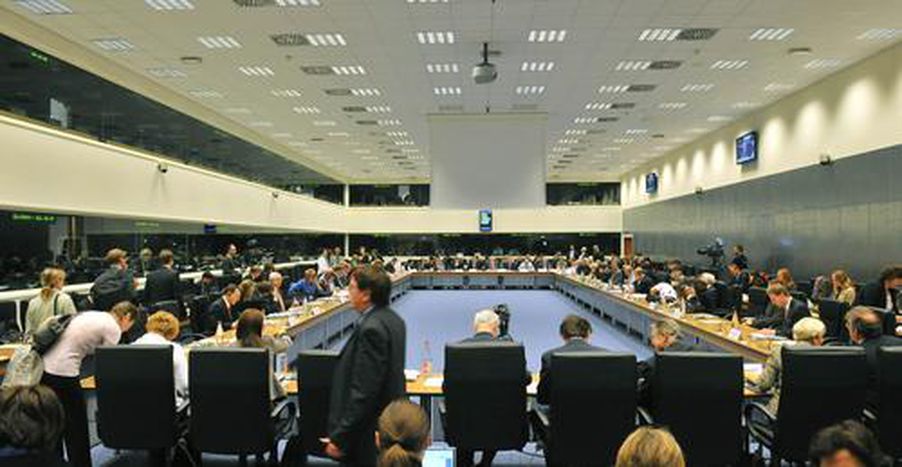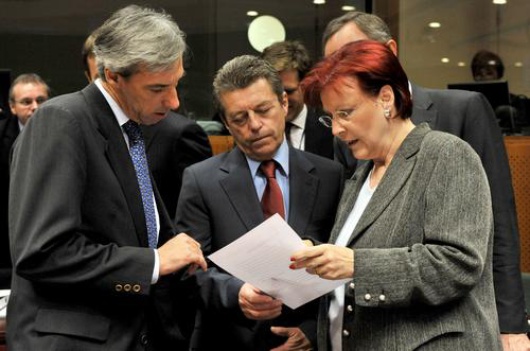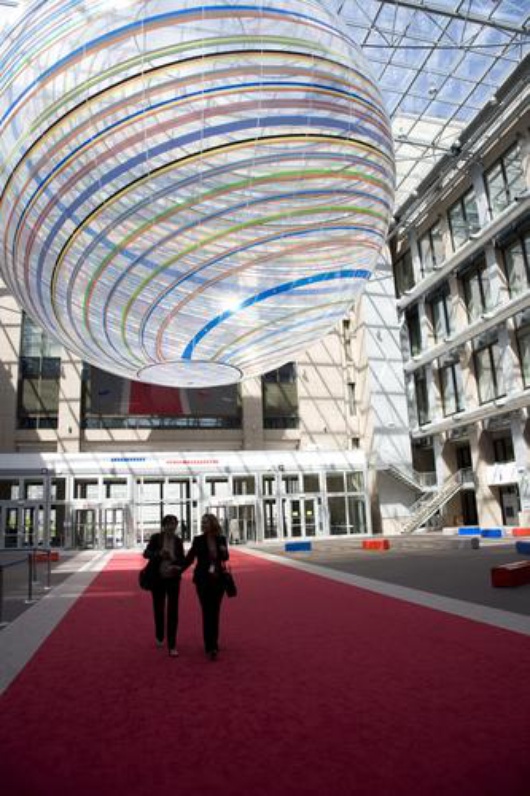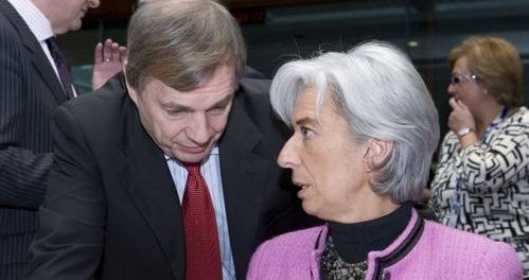
What the fridge is the council of ministers?
Published on
Translation by:
 Neil Saddington
Neil Saddington
Not to be confused with the European council, the council of ministers makes decisions which touch all member governments of the EU. But what do they really do?
 As the main body of the EU, the council of ministers represents the 27 member states. Every member state sends one representative to sit on the council, depending on the subjects being discussed. For example, if financial and economic issues are the order of the day, each member state will send their minister for finance and economy, who will also sit on the Ecofin Council. The European council can be categorised into nine distinct areas: economics and finance (Ecofin), justice and internal affairs, agriculture and fisheries, environment, etc. If, for example, the French minister for agriculture and fisheries makes a decision, it will affect the whole of the French government.
As the main body of the EU, the council of ministers represents the 27 member states. Every member state sends one representative to sit on the council, depending on the subjects being discussed. For example, if financial and economic issues are the order of the day, each member state will send their minister for finance and economy, who will also sit on the Ecofin Council. The European council can be categorised into nine distinct areas: economics and finance (Ecofin), justice and internal affairs, agriculture and fisheries, environment, etc. If, for example, the French minister for agriculture and fisheries makes a decision, it will affect the whole of the French government.
Six main roles:
 The council adopts European legislation, usually in conjunction with the European parliament
The council adopts European legislation, usually in conjunction with the European parliament
The Ecofin Council coordinates all economic policies within the EU
The Council signs agreements between the EU and third countries, usually in a commercial sense
It approves the EU budget, in agreement with the European parliament
It tries to define a common European foreign policy across the twenty-seven member states, even though this continues to be a national issue for many EU states, who are far from sharing a common vision (take the 2003 war in Iraq or the February 2008 independence of Kosovo as examples)
It aims to make the EU a ‘place of freedom, security and justice’, mainly through is fight against transnational crime.
Permanent representation
 Please don’t think that our ministers arrange these meetings between them! On the contrary, within the two committees for permanent representation (COPERER I and II) based in Brussels, teams of nationals, made up of diplomats and civil servants from different departments, arrange all council meetings, with the aim of defending the interests of their own country.
Please don’t think that our ministers arrange these meetings between them! On the contrary, within the two committees for permanent representation (COPERER I and II) based in Brussels, teams of nationals, made up of diplomats and civil servants from different departments, arrange all council meetings, with the aim of defending the interests of their own country.
Rotational presidency
The presidency of the council is held by a member state for a period of six months, during which it will direct and organise all council activities. This system has the distinct advantage of giving smaller countries the opportunity the face up to the ‘heavy weights’. However, policies started during one presidency are not always followed by the next. France will hold the post until 31 December 2008. It will then pass to the Czech Republic until June 2009.
Majority qualified voting
To avoid hold-ups, the council usually uses qualified majority voting. That said, when discussing certain delicate social issues (social welfare, foreign policy, etc.), Council members have the right to veto. The more densely populated the country, the bigger the voice in the council.
The Lisbon treaty
If the Lisbon treaty is adopted, qualified majority voting will reach new political domains. The way qualified majority voting will also change post-2014 and will be based on the principle of double majority (state and population). The presidency of the European council will also be extended to two and a half years.
Translated from Qu'est-ce donc que le Conseil des ministres de l’UE ?


